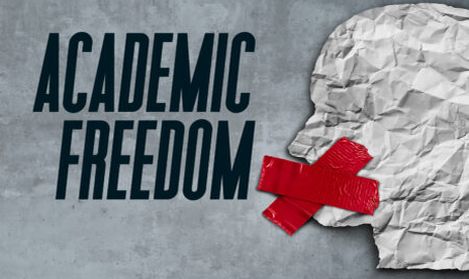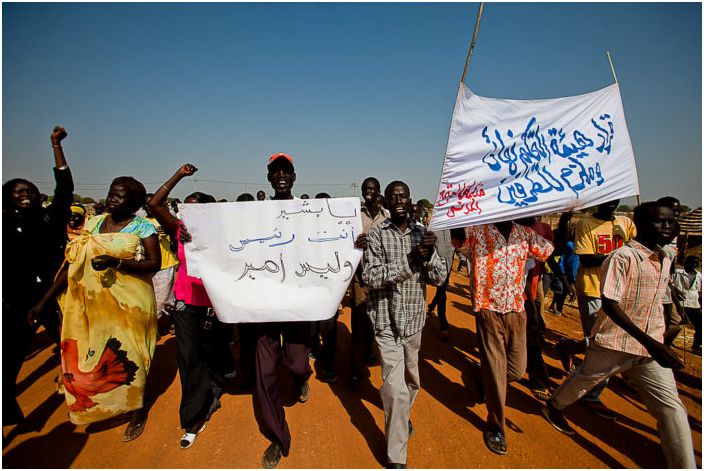“He who pays the piper calls the tune.” Never has this saying proved more true than in a recent case from the University of Toronto.
Last year, one of the U of T’s major donors learned that the university was about to hire a scholar whose ideas (supposedly pro-Palestinian) he disapproved of. Journalist Linda McQuaig reported that “the donor, David Spiro, a member of Toronto’s wealthy Tanenbaum family, that has given tens of millions of dollars to the university and its affiliated hospitals, decided to intervene by making his objections known to a high-ranking university administrator. Spiro is also a judge on the federal tax court and a former director of an influential lobby group, the Centre for Israel and Jewish Affairs (CIJA).”
Within hours of the objections being made known, the donor had received an assurance from a university administrator that the appointment of the scholar in question, Valentina Azarova, was on hold and that his objections to her appointment had been communicated to the appropriate people. Days later, Spiro got more good news: that the university had cancelled negotiations with Azarova, the unanimous choice of the selection committee to head the U of T law school’s International Human Rights Program.
Quiet discussions with administrators
McQuaig writes: “The university insists that its decision to halt Azarova’s hiring had nothing to do with the donor’s objections! Stung by criticism once the situation came to light last September, the university retained retired Supreme Court Justice Thomas Cromwell to investigate. Cromwell accepted the university’s explanation that it was immigration issues – not the donor’s intervention – that suddenly halted Azarova’s hiring. But Cromwell also set out in considerable detail the damning facts about Spiro’s intervention. Cromwell’s report documented how the CIJA forwarded an email to Spiro to ‘quietly find out the current status’ of the job search. ‘The hope is that through quiet discussions, top university officials will realize that this appointment is academically unworthy,’ the email continued, ‘and that a public protest campaign will do major damage to the university, including in fundraising.’”
McQuaig continued: “The case is a piercing reminder of the fragile state of our universities after decades of funding cuts. While governments used to be the primary funders of universities, today government grants provide only 24% of revenue at Ontario universities. This leaves universities increasingly reliant on money from wealthy donors and corporations, and fearful of offending them.” This goes to the heart of the principle of academic freedom, defined as ‘a moral and legal concept expressing the conviction that the freedom of inquiry by faculty members is essential to the mission of the academy as well as the principles of academia, and that scholars should have freedom to teach or communicate ideas or facts (including those that are inconvenient to current orthodoxies).’ ”
McQuaig argues that “the Azarova case highlights how this reliance on donor money risks undermining the university’s role as a key democratic institution where society’s power structures and prevailing orthodoxies – including, for instance, Canada’s unquestioning support for Israel — can come under scrutiny.”
U of T protects academic freedom?
U of T insists that it vigilantly protects academic freedom. Indeed, its declaration of the “Purpose of the University” – posted on its website – pledges to protect the right to raise disturbing, provocative challenges to society’s “cherished beliefs.” The declaration goes further, stating that protecting this right is the university’s foremost duty, since there is “no other institution and no other office, in our modern liberal democracy, which is the custodian of this most precious and vulnerable right of the liberated human spirit.”
McQuaig suggests that U of T’s administrators would no doubt support this powerful declaration on the university’s website. But she adds sarcastically, “they might just want to add a caveat at the bottom: ‘In cases where the University’s protection of the most precious right of the liberated human spirit is in conflict with the wishes of its major donors, the University will follow the money.’”
Other cases of following the money
The Azarova case wouldn’t be the first time that rich donors have exerted their will on U of T. The Munk School of Global Affairs, founded in 2000, was established in a written agreement with donor Peter Munk. It reveals that $15 million (almost half Munk’s $35 million donation) would only be given to the university at some point after 2017 – and only after Munk has been satisfied with the outcome of the Munk School. No doubt a displeasing outcome would be one arising from the hiring of academics doing research, say, on the role of multinational corporations in developing countries – where the mining operations of Munk’s Barrick Gold Corporation have come under attack.
In addition, Munk’s agreement with U of T calls for $2 million to be spent on “branding” aka the promotion of a particular product or company by means of advertising and distinctive design – as if the school were a drink or perfume. Another strange clause in the agreement specifies that the school’s elegant heritage mansion will have “a formal entrance reserved only for senior staff and visitors to the School.” But nothing about where the tradesperson’s entrance should be!
If an ordinary person tries to influence a decision with money it is called bribery, but when the rich to do it then it is call philanthropy.
U of T, Sick Kids and a drug company
Another incident of note dates back to the 1990s, involving both U of T and the Toronto Hospital for Sick Children. The issue at hand centred on attempts by the drug company, Apotex, to prevent publication of results of a trial that were unfavourable in relation to one of its products.
The dispute began after researcher Dr. Nancy Olivieri decided to break a confidentiality agreement with Apotex that was sponsoring her research. She published results critical of the drug deferiprone, which she was testing in young patients. Dr. Olivieri was threatened with legal action by Apotex and also removed from her hospital post, though she was later reinstated.
A report into the affair, commissioned by the Canadian Association of University Teachers, exonerated her. It concluded that Dr. Olivieri’s academic freedom had been violated when Apotex stopped the trials and threatened legal action if she went public with her fears about deferiprone. Reacting to the report, Dr. Olivieri said that neither the hospital nor the university, “both anticipating large donations from Apotex, supported me in fulfilling my ethical obligations to my patients or my scientific obligations to the public.”
In a news release, James Turk, executive director of the university teachers’ association, called for immediate action so that researchers’ ethical duties, academic freedom, the rights of patients, and the public interest should “never again be compromised in this way.” Turk said it was essential that medical faculty be given the same rights of academic freedom as all other faculties. He charged that the University of Toronto was currently in negotiations with its teaching hospitals over an alternative funding arrangement “that would strip clinical faculty of academic freedom.”
One of the study’s three authors, Jocelyn Downie of Dalhousie University, said her greatest concern was “the fact that this is not an isolated incident.” She added: “These incidents are happening across the country. We have a clear need for national standards to be implemented and applied … so that people can be protected.”
How to fund Higher Education
The above cases show that money does indeed talk, that many so-called philanthropists are more interested in using their financial power, not in a disinterested way but, to encourage universities to pursue academic work in the ways that suit the donor best. The first thing we would demand is an end to private funding of higher education. If government grants provide only 24 percent of revenue, it is no wonder that university administrations take their begging bowls to the “benevolent philanthropists.”
The main way universities have offset cuts from government is by raising tuition fees and increasing the enrolment of international students and those in professional programs not covered by the provincial tuition fee cap. In 2018 no less than 63 percent of U of T’s revenue consisted of “tuition and fees”– this figure was only 40 percent ten years ago.
Socialist Alternative has no problem in using businesses to fund universities. But the method of getting the money off them would be different. It would be in the form of wealth taxes and would involve increased capital gains tax, substantially higher income taxes and a capital gains tax on the sale of houses. This money, going into government coffers, would then be used to cover all education: capital and operating costs. It would also enable tuition fees to be reduced to zero, thus making it possible for more working-class students to attend university.
The popular myth of education as a leveler and a road to advancement for the masses has an element of truth but the deeper truth is that what is progressive about public education, like every other gain for working people in our society, has been the result of struggle. That struggle needs to be continued with the aim of achieving a socialist society that can guarantee every individual the opportunity to achieve their full potential.




